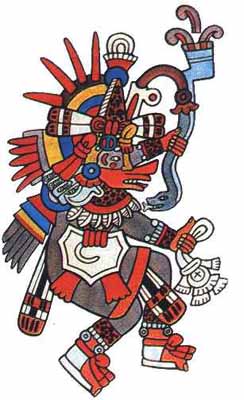Pollack 1
Charles Pollack
Professor Knapp
Eng1B
11/03/2011
Faith is the Substance of Hope
While growing up in a violent revolution of Iran, Marjane Satrapi’s faith is shattered, due to real life situations she witnessed as a child. Satrapi’s graphic novel contains both irony and paradoxical situations. She writes about the cost of war; loss of loved ones, religion, Islamic fanaticism and social injustices she must endure on a daily basis. I will list a few examples of paradoxes, ironies and ambiguity statements in the New Criticism analysis. In a time of chaos in Iran, Marjane Satrapi’s young life is indelibly changed. Satrapi’s faith and beliefs are shown to be tested in horrible and in sometimes comical ways. The reality of living and seeing the consequences of social distinctions, a fundamentalist revolution and a war, the ten year old Satrapi gives in to the conflicts and loses faith altogether.
Satrapi claims at the age of six, “I was born with religion” (Satrapi 6). Yet at no point does she write about what religion she follows. The beginning of the book begins with the Islamic Revolution and the wearing of the veil. Satrapi states, “… [I]really did not like to wear the veil, especially since we didn’t understand why we had to” (3). This proves she was not following Islam religion. Satrapi goes on to explain that she is very religious and describes her
Pollack 2
family as modern and avant-garde, a statement of ambiguity. This contradiction is stated when she describes the time her parents had given such books with Communist and Marxist writings to enlighten her. In the beginning of Satrapi’s story, she believes in the existence of God then her values and personal system of belief disappears so that she rejects religion and faith altogether.
Another interesting paradox is the two types of prophet used in the novel. She states, “At the age of six, “… I was the last prophet” (6). The illustration in the novel shows four people kneeling down worshipping a young Satrapi who has a crown of light around her head like a halo. This particular meaning of prophet indicates Satrapi’s claim to interpret or transmit the commands of a deity [God]. I believe she thought that this kind of prophet was someone who has the power to heal and change situations. It is in the next use of prophet, which is the paradox.
Utilized in another context prophet has a different meaning. Satrapi states several times about the negative situations in her family’s life. She wanted to change the segregation of classes. The maid is an example of social class distinction because she ate in another room apart from the family. Another example is her grandmothers aching knees. As a prophet, Satrapi wanted to heal the pain. However, she quotes Zarathustra, “…behave well, speak well, [and] act well” (7). It is in this use of the word prophet the meaning changes, “… as some who advocates a cause or idea” (Microsoft Encarta Dictionary). There is ambiguity in both meanings of prophet. It is difficult to determine whether she using the religious aspect of prophet or the advocacy of a just cause either way it is another use of paradox.
A situation that is clear ambiguity is in her defeatist tendency. When asked, in her classroom, what she will be when she grows up she states, “I’ll be a prophet” (8). After the
Pollack 3
teacher informs her parents, she acquiesces to her father’s questioning and tells him, “I will be a doctor” (9). Later that night she talks to God in her room and writes, “I felt guilty towards God” and states aloud to God, “… I will be a prophet but they mustn’t know” (9). She flip-flops in-between what she sees and what she imagines. She is beginning to see the world as it really is, consequentially she starts to lose faith. The proof is when she states, “My faith was not unshakable” (10). This is the beginning of her defeatist attitude and the loss of her belief system. The final paradox and irony comes when she compares God to Marx and tells God to get out of her life. Ten-year-old Satrapi read books by Karl Marx, his theory on dialectic materialism, for her enlightenment during the Iranian Revolution. Satrapi’s faith or belief in a particular religion is never stated. She has read a book about Marxism, but no references of God other than what she imagines. Satrapi illustrates images of God and Marx and writes how they resemble each other. She talks to God and tells Him when to change topics when she gets upset. Satrapi wants something more concrete than just a belief or the imaginations she conjures up. Her world and her beliefs are chaotic at best, but she continues to search for stability in her young life.
Overall, this graphic novel, Persepolis, is about faith shattered beyond repair, losing loved ones like her Uncle Anoosh, and the loss of religion. Islamic fanaticism and the injustices that she endured daily caused the loss of her faith. In the tragedy of sorrow and heartache, she blames God and banishes Him from her life. God was her comfort and the only thing that she really believed in. She states, “And so I was lost, without any bearings…” (11) it is at this point where she is becoming secular. The irony that Satrapi’s only concession seems to be about
Pollack 5
seeking freedom from war and Iran. Eventually she leaves Iran to find her identity elsewhere in a chaotic world.
Pollack 5
Works Cited
Satrapi, Marjane, Persepolis. New York: Pantheon Books, 2004. Print.
Soukhanov, Anne H. Microsoft Encarta Dictionary. New York, NY: St. Martin's Paperbacks, 2002. Print.
